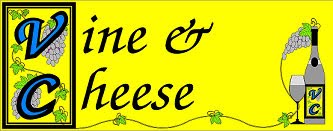Courtesy of our legal friend in town, we learned of a story in the New York Times last week about the financial problems of a Napa Valley winery owner and what he did to try to save his business. We won't mention the winery or owner by name because we, of course, live in glass houses ourselves, but suffice it to say, when we have faced adversity in business, we chose less desperate measures to sustain ourselves than did our compadre in Napa.
Our unfortunate case study began his career in the wine industry servicing both large and small wineries in northern California as an agricultural pest controller. That soon evolved into managing vineyards which then allowed him to expand his business into buying and selling grapes and bulk wine. As you can see in this most organic of industries, one thing can lead to another and eventually result in this personable big, burly, and gregarious man now having the product knowledge and industry contacts to parlay into a seat at the winery owner table.
It takes money to make money though and the hard truth in the wine business is that you have to sell the stuff. That is what I've always heard and that is what I've learned through my own experience. And if the competition is too tough then you have to get creative, think outside of the box, or get out before the looming inevitable becomes downright inevitable. In retail one can always outflank one's competition with alternative offerings. In Napa, the home of some of the world's finest Cabernet Sauvignon, it's a war for those market segment dollars and, as always, the strongest usually survive. Our subject, meanwhile, proceeded to borrow two million dollars from his in-laws who also enabled a bank loan for an additional million and in 2012, our Mr. X leased his dream winery on the Silverado Trail.
So much of a small business is figuring out how to make things happen. Our friend managed to get his wines placed on United Airlines Sochi Olympics flights, which may have been moderately profitable but after experiencing the marketing skullduggery of the Atlanta Olympics, that move could have netted nothing. Our friend also presciently continued his outside vineyard management work to supplement what he expected to make at the winery and that did bolster his project, just not in the way one might expect.
By California wine law, if a wine label says the contents are Napa Valley Cabernet Sauvignon, that bottle must contain at least 75% Napa Cabernet plus another 10% Napa wine, Cabernet or something else, with the remaining 15% being anything from anywhere in the state. With glaring financial problems staring him in the face, our hero boldly substituted purchased juice from neighboring counties for Napa juice, cutting his costs by as much as two-thirds. In his vineyard management business, he started altering sources, types, and weights of grapes he sold to others including selling organically farmed product that, in fact, wasn't. Finally, he surreptitiously diverted partial lots of Oakville and Howell Mountain Cabernet Sauvignon from some of his elite Napa winery clientele into his own already compromised wine.
Now bankrupt, eight million dollars in debt, and facing lawsuits from everyone he victimized; our subject would appear to be a completely unsympathetic figure. Except is he really? Should he have known better? Most definitely. But he let his vision (and ethics) get clouded. Then denying the slings and arrows that were coming, he continued on a course that bordered on delusional. Pliny the Elder who documented the devastation of Pompeii 2,000 years ago once said, "Wine is frequently adulterated." So let's get philosophical as we conclude our look at this modern psychodrama. The more things change, the more they stay the same.
And while we're discussing modern psychodrama, please join us Friday April 3rd after 5pm for a tasting of Tommy Basham wine from Georgia Crown Distributing. Tommy (as usual) is on the run from lawmen and mobsters, each of which hold him responsible for mayhem committed here and in neighboring states. If you join us for the tasting we strongly urge you to wear a protective vest of some kind since we cannot be held responsible should anything happen. We ask for a ten dollar per person donation to taste which is then applicable to a fifty dollar purchase.
Sunday, March 29, 2015
Subscribe to:
Post Comments (Atom)




No comments:
Post a Comment